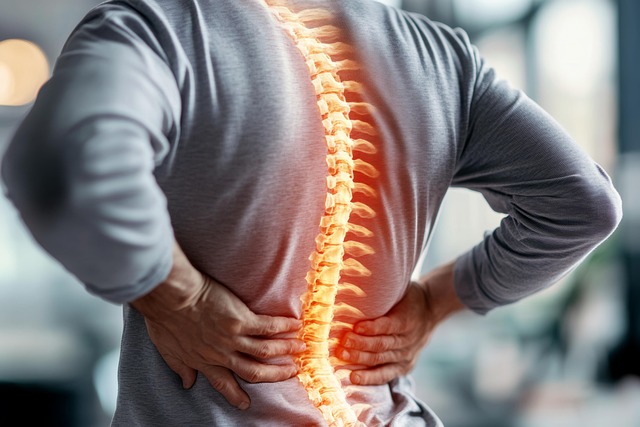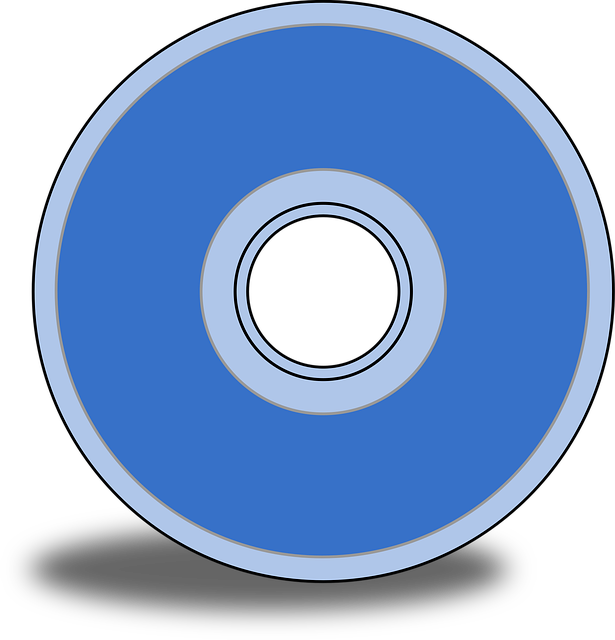Chiropractic management, particularly spinal decompression, offers a non-surgical solution for individuals with herniated discs resulting from post-car crash injuries. This technique gently stretches the spine, relieves nerve pressure, and promotes healing, providing effective pain relief and restoring function. Combining spinal decompression with physical therapy, rest, ice/heat treatment, good posture, and medication recommended by healthcare providers can significantly aid in recovering from such injuries.
Spinal decompression therapy has emerged as a promising solution for individuals suffering from herniated disc pain, particularly after a post-car crash. This non-invasive technique aims to alleviate discomfort and promote healing by gently stretching the spine, reducing pressure on affected nerves. In this article, we delve into the science behind spinal decompression for herniated discs, explore the role of chiropractic management in post-crash care, and provide effective pain relief strategies for optimal recovery.
- Understanding Spinal Decompression for Herniated Discs
- Chiropractic Management After a Post-Car Crash
- Effective Pain Relief and Recovery Strategies
Understanding Spinal Decompression for Herniated Discs

Spinal decompression is a non-surgical treatment option for individuals suffering from herniated discs, often a result of trauma such as post-car crash injuries. This gentle and effective technique aims to alleviate pain and restore function by gently stretching the spine. It’s a preferred method in chiropractic management, offering an alternative to surgery. During a spinal decompression session, a chiropractor uses a specialized table that allows for precise adjustments, creating a controlled stretch along the spine. This process can help reduce pressure on pinched nerves, promote healing, and alleviate symptoms associated with herniated discs.
Chiropractic Management After a Post-Car Crash

After a post-car crash, individuals often experience back and neck pain due to herniated discs. Chiropractic management plays a crucial role in treating such conditions. Chiropractors employ various techniques, including spinal decompression, to alleviate pressure on affected nerves and promote healing. This non-surgical approach is particularly effective for herniated discs, aiming to restore the spine’s natural alignment and reduce inflammation.
Chiropractic care offers a conservative treatment option, which can be especially beneficial following a trauma like a car accident. Through adjustments and manual therapy, chiropractors help relieve pain, improve mobility, and support the body’s natural ability to heal. This holistic management approach considers not just the physical symptoms but also the patient’s overall well-being, ensuring a comprehensive recovery after a post-car crash.
Effective Pain Relief and Recovery Strategies

Spinal decompression is a highly effective technique for managing herniated discs, offering significant pain relief for those suffering from post-car crash injuries. This gentle and non-invasive chiropractic management approach aims to reduce pressure on pinched nerves, alleviating intense pain and discomfort often associated with herniated discs. By gradually stretching the spine, spinal decompression allows for the disc material to reposition, reducing pressure and promoting healing.
In addition to spinal decompression, a comprehensive recovery strategy may include physical therapy exercises tailored to strengthen back muscles and improve flexibility. Rest and ice/heat therapy can also play a crucial role in managing immediate post-crash pain. Patients are encouraged to avoid strenuous activities and maintain proper posture during recovery, while over-the-counter or prescription medications can provide additional pain relief as directed by healthcare professionals.
Spinal decompression therapy offers a promising solution for individuals suffering from herniated disc pain, especially after a post-car crash. This non-invasive approach, often provided by chiropractors, can effectively alleviate pain and promote recovery. By understanding the specific techniques and benefits of spinal decompression, patients can make informed decisions about their treatment options. Chiropractic management plays a vital role in managing herniated discs and improving quality of life for those affected by such injuries.














